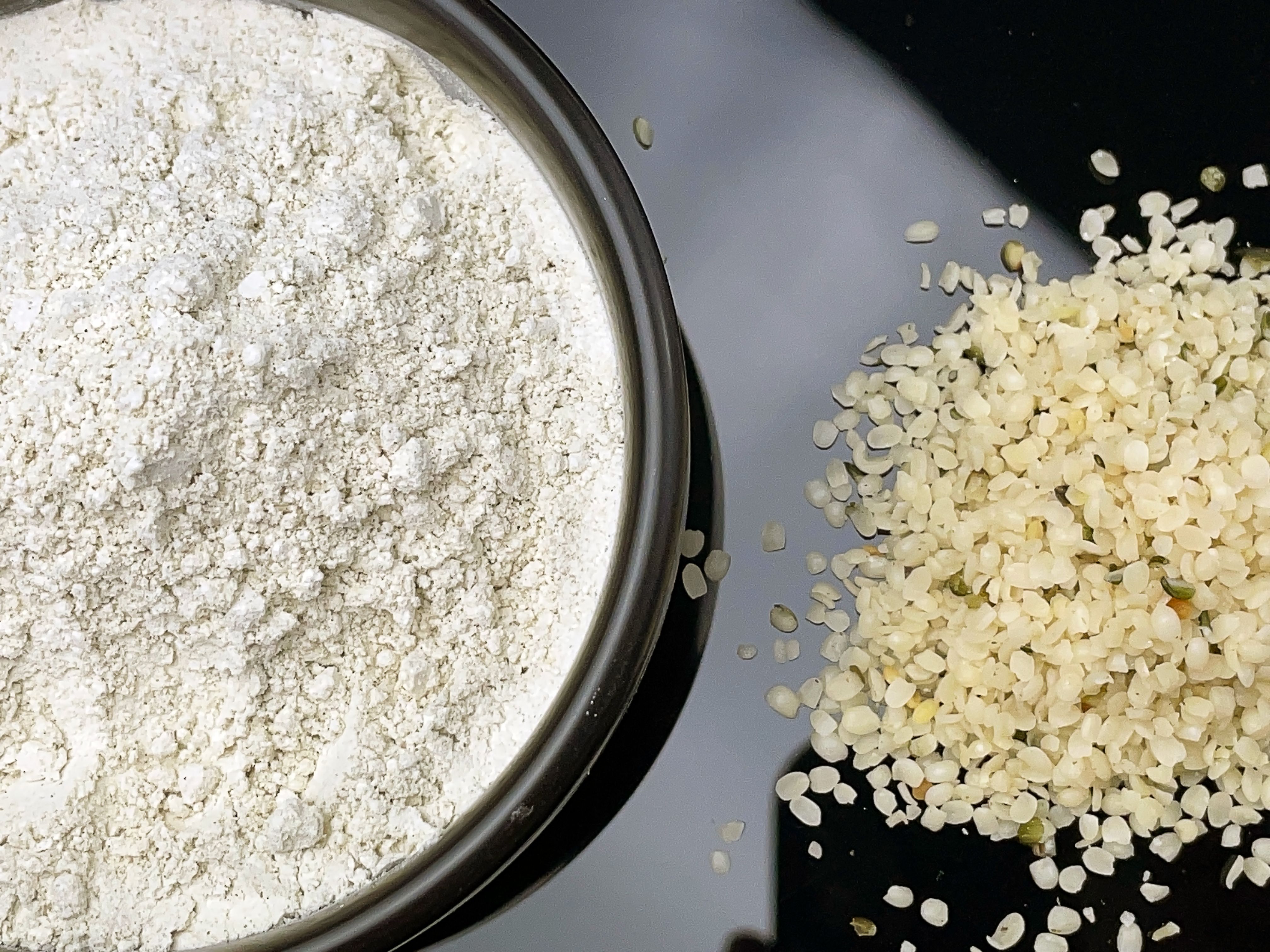Hemp vs Soy - Which Protein Source is the best?
If you are interested in trying out a plant-based protein powder, stay tuned! In this article we will compare protein derived from hemp to soy protein isolate.

There are many reasons why more and more people switch to a plant-based diet or try to consume less animal derived products. While becoming vegan does not solve all of the problems we have, it does indeed help solving some: the climate change, the mistreatment and killing of animals and the reudction of the leading cause for deaths world wide: ischemic heart disease favored by diseases such as hypertension and diabetes mellitus.
If you are interested in trying out a plant-based protein powder, stay tuned! In this article we will compare protein derived from hemp to soy protein isolate.

We, of course, are huge fans of hemp protein powder! It has a protein content of about 50% while the amount of fats is around 10% and carbs around 5%. It has a reasonable amino acid profile but is lower in total protein when compared to other protein sources: 30 grams of hemp protein powder contain about 115 kcal and approximately 15 grams of protein. Soy protein isolate has a high protein content of around 80%, at the same time 0g of carbohydrates and only 3% fat. For 30 grams of soy protein isolate we have 114 kcal and around 27 grams of protein.
Soy protein isolate is rich in vitamin B, magnesium, potassium and iron, as well as zinc and phosphorus. Hemp protein also has quite an impressive vitamin and mineral profile: it is rich in zinc, iron and magnesium. Additionally it has a fiber content of about 20%, supporting the digestive system and keeping full for a longer period of time. In comparison: soy protein isolate has a lower fiber content but still contains approximately 6%. Another beneficial aspect of fiber: it can diminish the risk of chronic deseases.

Hemp protein is rich in the high-quality essential fatty acids omega-3 and omega-6. They are contained in an optimal ratio of 1:3 while most western diets have an unhealthy balance of 1:50 or even higher. This unbalance can support chronic inflammatory processes.
Looking at protein that comes from soy, we can see that it contains higher amounts of the nine essential amino acids: histidine, isoleucine, leucine, lysine, methionine, phenylalanine, threonine, tryptophan, valine. Essential meaning that the body is not able to make those amino acids itself, we need to provide them through food. One exception is methionine, which is found in slightly higher amounts in hemp. Methionine plays a role in removing toxins from the body and promotes skin, hair and nail growth. Hemp protein also contains all of the EAAs but is lacking in methionine. However, it has a higher level of the amino acid arginine, which is important for blood flow regulation, toxin removal and immune function.

Soy protein isolate has a higher digestibility rating than hemp protein. On the other hand, protein gained from raw, whole soybeans contain a high amount of trypsin inhibitors which make it hard for the body to absorb the protein. And unfortunately, soy is among the most common food allergies and consequently not ideal for everybody.
An important aspect to keep in mind when only consuming plant-based products is that amino acids can upgrade each other through out the day. The human body is able to save amino acids in the muscles that can be complemented with the ones your next meal contains. So there is no need for stress if you are not able to take in all the essential amino acids in one meal.

Both plant-based protein sources are valuable and of high-quality. The decision between both is very individual and if you can not decide, it is a great option to combine both to profit from their macro- and micronutrients. If you want to spice up your hemp shake, try out our recipe for a delicious and nutritious protein rich snack.


